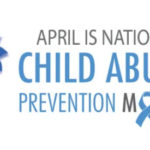A study published in the journal Sleep Health found that taking short naps might help protect your brain from age-related shrinkage that is associated with cognitive decline and dementia. Some research has noted that people who nap a great deal have a higher risk of high blood pressure and stroke. Excessive napping may also be an early sign of Alzheimer’s. However, other research found that short naps can boost brain power.
In June 2023, researchers at University College London and University of the Republic in Uruguay examined genetic, lifestyle, and health information of 500,000 people ages 40 to 69, and selected 35,080 participants. They examined 97 genetic variations and compared the brain health and cognition of people genetically programmed to nap with those who did not have the same gene variants. The researchers were also able to control for lifestyle factors like physical activity or smoking, and found that people who are genetically geared for napping had bigger brain volumes.
Dr. Victoria Garfield, senior author of the study, says the findings suggest that for some people, short naps during the day may be part of a puzzle that could help preserve brain health as we age. She also says that naps may help compensate for poor sleep. While there was no data on napping duration, prior research showed that napping for one half hour or less during the day would likely benefit short-term cognitive health as well as nighttime sleep.
Garfield hopes the study will help reduce the stigma that exists around daytime napping. To learn more about short daytime snoozes, read “How to Get the Most Out of Napping” at https://tinyurl.com/4s4yt95p. For napping do’s and don’ts for healthy adults, see https://tinyurl.com/2p8huwjm.












